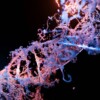
Natural Signs and Knowledge of God
Reviewed by John Culp, Philosophy, Azusa Pacific University
This paperback edition of a work originally published in 2010 responds to the general recognition among both Christians and non-Christians that the traditional arguments from natural theology for God’s existence do not provide conclusive proof that God exists. Despite this recognition, the ongoing revision and debate about the arguments demonstrate the continuing fascination with the classical arguments.
Evans’ response to the ambiguous status of the traditional arguments for God’s existence involves three steps. Evans first sets out his understanding of natural theology and identifies his understanding of the basic nature of the evidence. In chapter 1, he argues that natural theology provides rational grounds for faith but does not provide saving knowledge of God. Chapter 2 develops his concept of theistic signs as a type of natural sign. Natural signs, according to Thomas Reid, are objects that cause sensations giving rise to conceptions that are not resemblances of the object. Evans then, in chapters 3 through 5, identifies the theistic signs that support the traditional cosmological, teleological, and moral arguments for God’s existence. Evans concludes in chapter 6 by responding to skeptical theism which claims that no evidence can be given for God’s existence by acknowledging that the evidence from theistic natural signs can be resisted but denying that this resistible nature of the evidence counts as counter-evidence to God’s existence.
Evans locates his efforts in the area of natural knowledge or natural theology, because the traditional arguments do not presuppose any special religious authority. Natural signs point toward something but require interpretation rather than providing direct knowledge of the object or subject at which they point. This process of interpretation, as the Reformed Epistemologists have pointed out, depends upon a ground, or basic belief, rather than upon formal arguments. Evans thinks that Reformed Epistemology is correct in that knowledge of God does not have to be based on formal arguments. However, Evans finds that natural knowledge of God has more value than Reformed Epistemology allows. Natural knowledge of God does offer knowledge of God based upon evidence. Evans offers a mediating position between the Reformed Epistemologists and Evidentialists. Natural knowledge of God may provide evidence by means of the mediating role of the sign, which can be a basis for an inferential argument. But even when the sign does not function as the basis for an inferential argument, it still may be evidence in that it makes a certain truth more evident to someone. Evidence can be taken at face value or can make truth more evident. In all of this, natural theology provides rational grounds for faith even though it does not provide saving knowledge of God.
The heart of Evans’ position depends on the concept of a natural sign. Drawing on Reid, Evans point out that natural signs are causally linked both to the objects that the sign points toward and to the mental acts that culminate in beliefs about the object pointed toward. These causal connections reflect dispositions grounded in human nature rather than mere social conventions. For Reid, sensations provided the basis for perceiving the world, but they did not resemble the object that is perceived. Evans works with a looser sense of causation than Reid but agrees that a sensation plays a key role in producing the conception and the belief that constitute perceptions. Further, Evans finds evidence in contemporary science that original perceptions are hardwired in ordinary experiences. Acquired perceptions, which can also serve as natural signs, are more generally related to objects and require original perceptions as a basis. Evans moves beyond Reid by describing natural signs of God as a means by which a person becomes aware of God. Theistic natural signs, created by God to be signs, dispose people to form beliefs by pointing to a reality. However, as signs, they may vary in strength and may be misunderstood.
Evans focuses on theistic natural signs associated with cosmological, teleological, and moral arguments for God’s existence. Evans treats each of these moral signs by considering the various forms of each resulting argument and the objections to the various arguments. He emphasizes that theistic natural signs provide only a very limited knowledge of God but that even thinkers who do not believe in God find the natural signs to be meaningful and important. Cosmological arguments develop from the theistic natural sign of cosmic wonder, a sense that something is mysterious and requires explanation. This sense that something is mysterious connects closely to the sense that there may be something else that has necessary existence in contrast to the contingent existence that elicits wonder. Cosmic wonder points toward the world as a reflection of God’s own creative work. Teleological arguments draw on the natural sign of the recognition of the presence of an orderly structure that seems to lead to good results. The rejection of chance as the explanation of all of reality does not provide knowledge of God beyond a vague sense of a source of order that is good. Instead, the natural sign of beneficial order creates a hunger for more insight into the nature of God. Moral arguments for God’s existence indicate the awareness of objectively binding moral obligations in the experience of being a responsible and accountable moral being and from perceiving the special value and dignity of human persons. Moral natural signs provide more content for knowledge of God than do cosmological and teleological signs. Moral signs point to a God who is essentially good and who desires a relationship with human persons.
Finally, Evans turns to the issue of theistic natural signs as evidence. Two issues come up when considering whether or not natural signs provide evidence of God’s existence. One issue is the nature of evidence. While the Kantian requirement of spatio-temporal experience as evidence counts against natural signs as evidence for God, William Alston and others have challenged limiting evidence to spatio-temporal experience. Another response to the Kantian requirement understands evidence as reasonable depending upon the knower’s subjective history. Although theistic natural signs are less universal and less powerful than natural signs, they are widely accepted as shown by cross-cultural beliefs in God or gods. Another issue in considering theistic natural signs as evidence of God’s existence arises out of the easy resistibility principle of natural signs. If theistic signs are evidence, it seems that there should be greater acceptance of God’s existence and resistance to belief should be much more difficult. J. L. Schellenberg’s argument from God’s hiddenness expresses this problem. Evans responds to Schellenberg by identifying God’s hiddenness as a special case of the problem of evil. The possible theodicies and defenses demonstrate ways that God’s existence and evil are both possible. Ultimately, Evans argues that God’s love seeks relationships that humans freely enter into and that a lower resistibility to theistic natural signs would be destructive of freely chosen relationships with God. Evans’ emphasis upon human freedom in response to the problem of God’s hiddenness contrasts with Paul Moser’s position that God’s hiddenness protects against human idolatry and human responses to God that are based on wrong motivations rather than being a protection of human freedom.
Evans provides a helpful overview of the current state of arguments for God’s existence in natural theology. His principles of wide accessibility and easy resistibility account for both the continuing value of traditional natural theological arguments for God’s existence while also recognizing that the arguments do not provide conclusive evidence for God’s existence. Although he does not directly deal with challenges from Continental philosophers about the viability of rational demonstration based on human experience, he does recognize the hermeneutical issues in making arguments from human experience for God’s existence. His acceptance of Reformed Epistemology touches on the importance of foundational beliefs for reasoning and arguments but never directly addresses the issue of whether the traditional arguments give evidence or express beliefs. However, the purpose of his book is not to enter into a technical discussion about the relationship between belief and evidence. His consideration of the cosmological, teleological and moral arguments for God’s existence is both comprehensive and current. He carefully identifies the various forms of each argument, the traditional and current criticisms, and responses to those criticisms based on his concept of theistic natural signs of God’s existence. Although he is succinct in his treatment of complex discussions, his presentation is not technical and is easily followed. The brevity of his treatment of each argument does make his work more useful as a textbook or survey of the contemporary discussion than as a fully developed presentation of his position.























